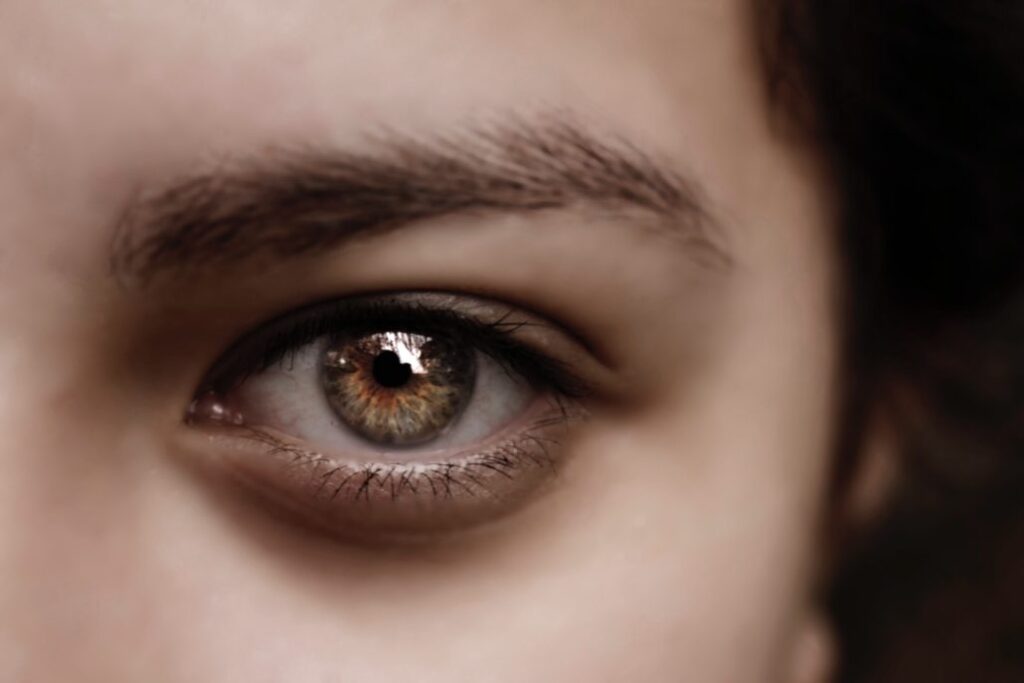It’s a bright sunny summer day and you forgot your sunglasses. You walk outside and instantly you have a natural, knee-jerk reaction to squint. Why? It’s obvious you are squinting because of the sunlight. Similarly, your iris does the same. But, exactly why and how does this happen? Find out in this week’s blog post all about the iris – it’s anatomy, function, and related eye diseases.
It’s too sunny I can’t open my eyes!
Have you ever tried to open your eyes normally on a very sunny day? If you ever have it is very difficult. It feels unnatural and you can’t do it for long. Squinting is a natural reaction to the degree of light surrounding us. If there is too much light, our brain signals our eyes to squint. The iris works this way too – it helps regulate how much or how little light enters the eye so our vision is optimal. This process is completely involuntary.
What Is The Irises Function?
First, in order to understand the irises function, we must understand it’s anatomy. The iris is located behind the cornea and is commonly described as the colored part of the eye. Interesting fact about the iris is we all have a unique one, just like our fingerprints! And a reason why they can be used as a means of security via eye scans. The middle portion of the iris has an opening, which is called the pupil. You could think of the iris’s shape like a slim doughnut – an oxymoron we hope is never realized in real life! Small muscle fibers constrict or dilate the iris, changing the size of the pupil.
Now onto the irises function. The pupil changes sizes so the retina receives the optimal level of light. This is why you will notice on a bright day your pupils are more constricted. However, in low light settings, your pupils will appear much larger (or dilated). It is our eyes’ way of ensuring that only the proper amount of light enters the eye. Too much or too little can affect our vision. Additionally, excessive sun exposure can cause irreversible eye damage. That’s right our eyes can get sun burnt.
Eye Conditions & Diseases Affecting The Iris
Just like any part of the eye, the iris is not immune from eye issues and diseases. Some of the major concerns optometrists have with the iris include:
- Inflammation of the iris (iritis): the iris can become inflamed due to a number of reasons, which fall into two categories: trauma related and non-trauma related. A disease like arthritis can cause inflammation in the eye that could lead to blindness if not treated. A good reason why Dr. Sharma always stresses the importance of regular eye exams. Issues can be caught during your exam, which may have little to no symptoms, allowing for earlier and more effective treatment.
- Melanoma of the eye: because the iris is made up of pigment, melanoma can occur in these cells. The American Cancer Society website explains how this occurs
“Most of the other intraocular melanomas start in the iris (also part of the uvea). These are the easiest for a person (or their doctor) to see because they often start in a dark spot on the iris that has been present for many years and then begins to grow. These melanomas usually are fairly slow growing, and they rarely spread to other parts of the body. For these reasons, people with iris melanomas generally have a good prognosis (outlook).”
Don’t Skip Seeing Your Family Eye Care Centre Regularly
It goes without saying the eye is an extremely complex function, that we cannot replace with a transplant. So it is important to remember to care for them proactively all throughout your life, starting at childhood. The best way you can do this is by having an eye doctor assess your eyes. It is an opportunity to ensure that your vision is clear and that your eyes have no issues that need to be addressed.
If you are looking for a local eye doctor you can trust, book an appointment with Dr. Sharma by giving us a call or booking online.
